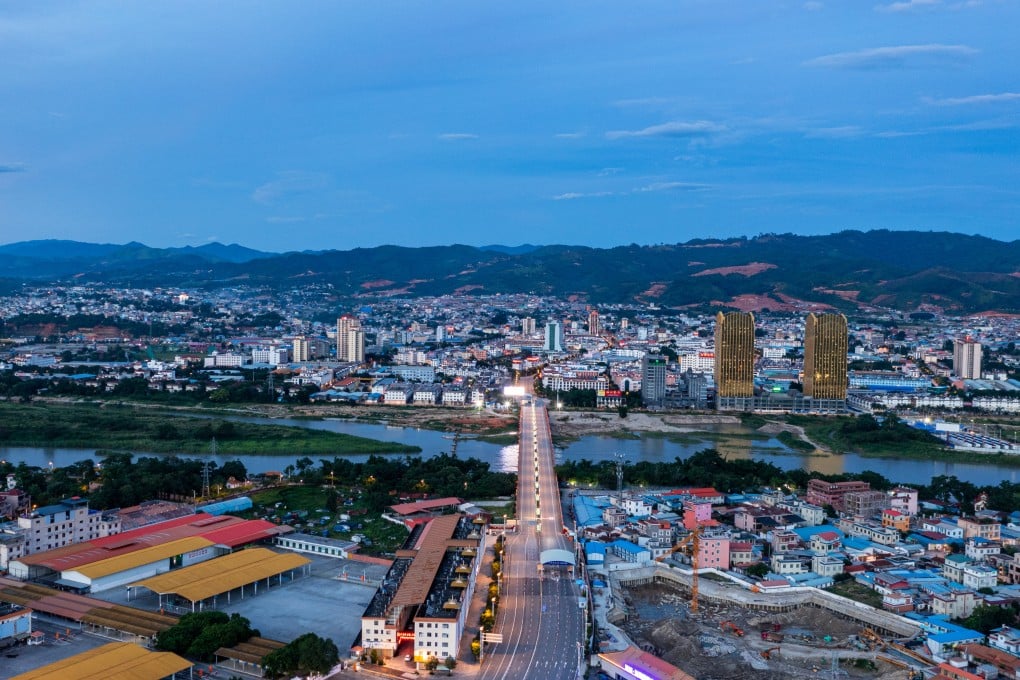Life turned upside down in Ruili, China, the world’s strictest zero-Covid city
- Ruili, on the China-Myanmar frontier, has endured seven lockdowns that shut off border traffic, shuttered businesses and left residents short of food

China’s 2,129km (1,323-mile) border with Myanmar traverses some of the most rugged landscapes in Asia. Mountains rise as high as 5,800 metres (19,000 feet) above sea level, fast-running rivers flow between steep cliffs, and dense forests shelter giant hornbills, snub-nosed monkeys, and elephants.
The region has never been an economic development priority for either country, and it has few roads and even fewer large settlements. Ruili, a city in Yunnan province of a little more than a quarter of a million people located on one of the only areas of flat land, is the exception.
Such traffic has come to an almost complete halt.

With the pandemic going largely unchecked in Myanmar, last year Chinese officials began putting up spans of sheet metal, barracks for guards and fences topped with razor wire along the boundary with Muse – structures the mayor dubbed a “Steel Great Wall”.
